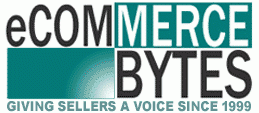Taxes are complicated, and that’s just as true for state and local sales tax as it is for income tax. Online sellers are required to collect sales tax wherever they have a physical presence. Whether that’s one state or many, here’s a look at some of the changes for 2016 that you may need to know depending on where you are based and have operations.
Today’s guest column comes from Scott Peterson, Director of Government Affairs for Avalara, Inc., a leading provider of cloud software delivering compliance solutions for sales and use tax, VAT, and other transactional taxes. Note that he is an Avalara tax expert and not a practicing attorney – the information provided in this article should not be relied upon as legal opinion.
Sales Tax Changes 2016: Breaking Down the States, Rates, and Debates
By Scott Peterson
Like every New Year, 2016 will bring many sales tax changes. Rates will decrease or increase, there’ll be new product taxability rules, exemptions will expire or take effect, and there will be reporting changes. The only thing certain when it comes to sales tax is that change happens. And if often happens without much warning.
The coming of a New Year is a time to reflect on the past – what went well and what you wish you’d done differently. It’s a time for resolutions. This new year, have no regrets when it comes to sales tax.
So, let’s take a look at what’s going in the world of sales tax.
Rates and debates
Nearly a dozen states, including Illinois and Maine and Minnesota, have announced local sales tax rate changes for 2016. In addition, there is talk of increasing the state sales tax rate in both Oklahoma and Florida.
State departments of revenue often – but don’t always – announce rate changes in time for businesses to account for them. However, in tricky home rule states like Colorado and Louisiana, local governments may not notify state revenue departments of such changes in a timely manner, or at all.
Product Taxability
Businesses also need to account for changes in product taxability. Sales tax can be expanded to services or slapped onto previously exempt tangible personal property.
States generally announce changes in time for sellers to account for them; yet unfortunately, that’s not always the case. For example, on June 30, 2015, Governor Jay Inslee of Washington signed legislation reforming the regulation and taxation of the marijuana market. It took effect the following day.
Product taxability coming in 2016 include the following:
- Martial arts classes and many other physical fitness services will become subject to sales tax in Washington State.
- North Carolina will extend sales tax to installation, maintenance and repair services.
- Retail sales of prepaid wireless communications access will become subject to retail sales tax in Wyoming.
- The list of foods considered to be prepared food (and taxable) will be expanded in Homer, Alaska.
Exemptions
Changing sales tax exemptions are also a bear, whether at the state or local level. While many, like the exemption for gun safety devices recently approved by the Michigan Senate, make headlines, many others slip into law virtually unnoticed.
Some exemption changes under consideration or set to take effect in 2016 include the following:
- California’s partial tax exemptions will decrease.
- Florida’s exemption for college textbooks is set to expire but its manufacturing exemption may be extended.
- Iowa’s machinery and equipment sales tax exemption may be expanded.
- North Carolina will provide a sales tax exemption for electricity used in qualifying datacenters.
- Senior sales tax exemptions will be scaled back in Juneau, Alaska.
Reporting
Last to be considered here (but certainly not the last issue sellers will confront) are changes to the way sales tax is reported. Some of the changes planned for 2016 include:
- New reporting requirements for exempt entities in Alabama (this is a big deal).
- New reporting requirements for sales of consumable vapor products in Alabama.
The Alabama legislation increases the proof exempt entities must provide to buy tax exempt, but it impacts online retailers because it is the retailer who is required to maintain that proof. Alabama is a state that holds the seller liable for the validity of the exemption. Now that more buyers must provide proof, more sellers will now be held liable when they haven’t kept that proof in their books and records.
Be Ready
Sales tax changes are coming in 2016. There are new rates, product taxability rules, exemptions and filing requirements, and the onus is on the seller to comply with those changes. Failure to do so can lead to negative audit findings, penalties, interest, and a whole lot of hassle. So what’s your plan?
Scott Peterson is Director of Government Affairs for Avalara.



